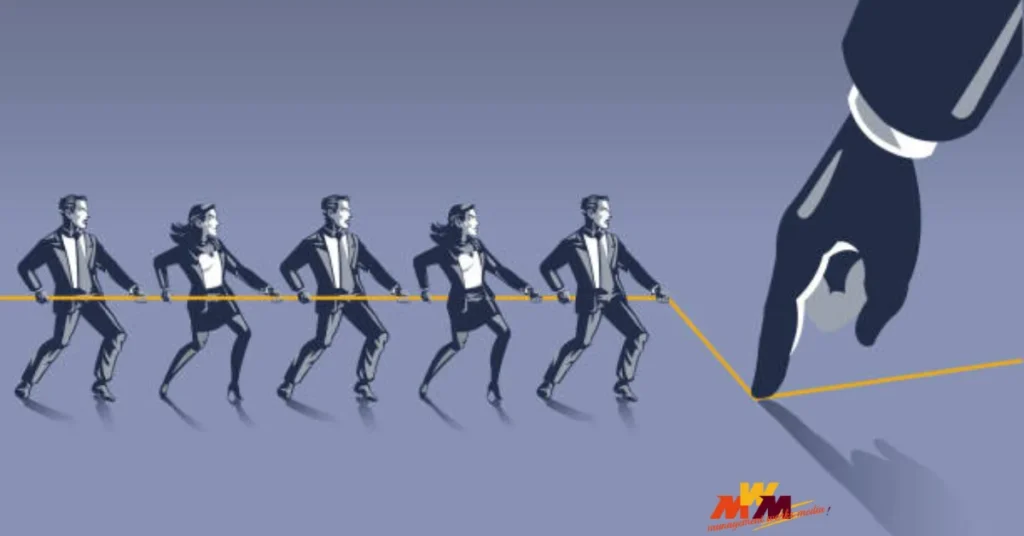Introduction to Ombudsmen
Ombudsmänner—an intriguing term that may raise questions about their function and significance in our society. But who exactly are these individuals, and why do they matter? In a world where transparency and accountability are more crucial than ever, ombudsmänner serve as guardians of citizens’ rights. They act as intermediaries between the public and institutions, ensuring justice is served when grievances arise.
Imagine having someone on your side to address complaints against government agencies or corporations. That’s precisely what an ombudsman does! With roots stretching back centuries, the role has evolved but remains vital today. As we delve deeper into this topic, you’ll discover the history, responsibilities, powers, challenges faced by ombudsmänner—and most importantly—their profound impact on society at large. Ready to explore? Let’s dive in!
There’s so much more to discover—browse our related posts!
History and Evolution of the Ombudsman Role
The concept of the ombudsman has roots dating back centuries. It originated in Sweden in 1809, designed to oversee government actions and protect citizens’ rights. The term itself comes from the Swedish word meaning “representative.”
As this role spread globally, various countries adapted it to fit their unique political landscapes. In the mid-20th century, many nations established their own ombudsman offices, recognizing their importance in enhancing governmental accountability.
With advancements in technology and communication, the role has evolved further. Modern ombudsmänner now tackle issues ranging from public service complaints to human rights violations. Their influence continues to grow as societies demand more transparency and responsiveness from institutions.
Today’s ombudsman embodies a bridge between citizens and power structures, ensuring grievances are addressed effectively while fostering trust within communities.
The Role and Responsibilities of an Ombudsman
An ombudsman serves as a vital link between the public and institutions. Their primary role is to address complaints and resolve issues that citizens may face regarding governmental or organizational practices.
They investigate cases impartially, ensuring fairness for all parties involved. This process often includes gathering evidence, interviewing witnesses, and reviewing relevant documents.
Ombudsmen also provide recommendations aimed at improving policies and procedures. They highlight systemic problems that could affect many individuals, pushing for necessary reforms.
Education plays a key part in their responsibilities. By informing the public about rights and available resources, they empower individuals to advocate for themselves effectively.
Additionally, ombudsmänner work with various stakeholders—government officials, organizations, and community members—to foster better communication. Their presence enhances transparency within institutions while promoting accountability on multiple levels.
Powers and Limitations of Ombudsmen
Ombudsmen wield significant influence in promoting accountability within public institutions. They can investigate complaints, recommend changes, and advocate for citizens’ rights. This power allows them to shine a light on injustices that might otherwise go unnoticed.
However, their authority is not without boundaries. Ombudsmen often lack enforcement powers, relying instead on persuasion and recommendations to effect change. They can’t mandate actions or impose penalties on entities they investigate.
The jurisdiction of ombudsmänner varies widely by country and organization. Some may focus solely on governmental bodies while others extend their reach into private sectors. These limitations can impede their effectiveness in certain contexts.
Despite these challenges, ombudsmen serve as crucial intermediaries between the public and institutions. Their role fosters trust by providing an avenue for grievances when traditional channels fall short.
Your next favorite article might be just a scroll away!
The Impact of Ombudsmen on Public Institutions and Citizens
Ombudsmen play a pivotal role in bridging the gap between citizens and public institutions. Their presence fosters transparency, accountability, and trust within the system.
By investigating complaints against government actions or policies, ombudsmänner provide a voice for those who feel unheard. This empowers citizens to engage with their rights more actively.
Moreover, they highlight systemic issues that may otherwise go unnoticed. Through their recommendations, ombudsmen can prompt institutional reforms that enhance service delivery.
The impact extends beyond individual cases. As they address grievances effectively, public confidence in governmental processes grows stronger. Citizens begin to see these institutions as approachable rather than intimidating entities.
In essence, ombudsmänner help cultivate a culture of responsiveness among public officials. This dynamic not only improves individual experiences but also strengthens democratic values at large.
Case Studies: Successful Use of Ombudsmen in Different Countries/Contexts
In Sweden, the role of ombudsmän has been pivotal in promoting transparency. The Swedish Ombudsman for Children effectively advocates for children’s rights. This institution ensures that young voices are heard within governmental policies.
Australia presents another compelling example. The Office of the Commonwealth Ombudsman addresses complaints against federal agencies. Through mediation and investigation, they have improved public administration’s responsiveness to citizens.
Meanwhile, Canada’s Indigenous Services Ombudsman highlights a unique context. They focus on addressing grievances related to Indigenous services and programs, bridging gaps between communities and government entities.
In South Africa, the Public Protector plays a crucial role in combating corruption. By investigating maladministration cases, this office strengthens trust between citizens and their leaders.
These diverse examples illustrate how ombudsmänner adapt to local needs while enhancing accountability across various sectors worldwide.
Criticisms and Challenges Faced by Ombudsmen
Ombudsmen play a crucial role in fostering transparency and accountability. However, they face significant criticisms that can undermine their effectiveness.
One major issue is the perception of bias. Critics argue that some ombudsmen may favor certain groups or institutions over others. This can lead to mistrust among citizens who seek fair resolutions.
Resource limitations also pose a challenge. Many ombudsman offices operate with tight budgets and personnel shortages. As a result, they often struggle to address all complaints effectively.
Additionally, there are concerns about their authority. Some view ombudsmen as having limited power to enforce recommendations, which can diminish their impact on public institutions.
Public awareness remains another hurdle. Many individuals do not fully understand the role of an ombudsperson or how to engage with them, leading to underutilization of this vital resource in addressing grievances.
Conclusion
Ombudsmänner serve as a crucial bridge between the public and institutions. Their development over time has shown how adaptable this role can be in response to societal needs. As guardians of accountability, they take on vital responsibilities that empower citizens. While their powers are not without limits, the influence they wield is significant.
The impact of ombudsmänner extends beyond individual cases; it shapes institutional practices and enhances transparency within governments. Countries around the world have witnessed firsthand the benefits derived from effective ombudsman systems, fostering trust with citizens through successful interventions.
However, challenges remain in ensuring these entities operate effectively. Criticisms surrounding their authority and resources highlight areas for improvement. Addressing these issues will strengthen their ability to advocate for those who feel unheard.
As society evolves, so too must the role of ombudsmänner adapt to meet emerging demands. By embracing change while maintaining core principles of fairness and justice, they continue to play an essential part in safeguarding democratic values across various contexts.
Having more content? Dive into our latest posts now!






